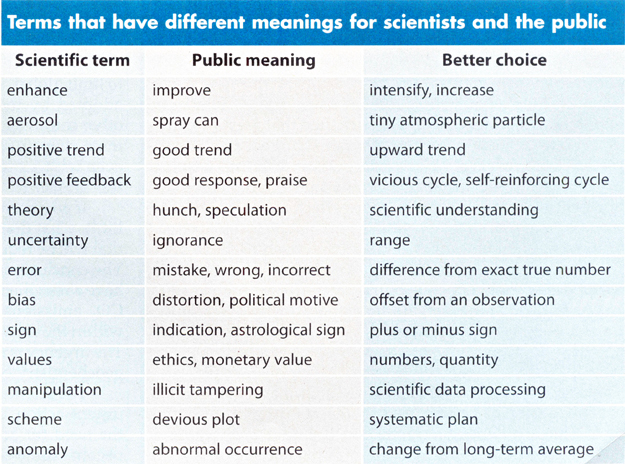Scientists and the public often seem to speak a different language.
And no, I’m not necessarily talking about the dense jargon employed by scientists or, to be frank, the private (or public!) sectors. Instead, I’m talking about some pretty common words, like enhance*. Or aerosol, or manipulation, or, even, scheme.
Taken from the article Communicating the Science of Climate Change (1), I think it’s a stark (and extremely useful reminder) to science communicators everywhere to bear your _audience_ in mind when talking science.
If a scientist about whose work you are writing gives you stick for using a non-technical term, or a synonym for manipulation which you know the public would understand as ‘scientific data processing’ rather than ‘illicit tampering’? Explain to them, very sweetly, that they’re not the audience.
It’s increasingly important that we make the science clear. Hopefully this will help :)
Via AGU Blogosphere
—-
* I just think of someone sitting in front of a computer, saying ‘enhance…enhance…enhance’ as they make three pixels into a fully rendered image of a number plate.**
** On that note, behold! The future is here, in the shape of _almost being able to do that_, sortof :)
—-
References
(1) Richard C. J. Somerville and Susan Joy Hassol, October 2011 issue of Physics Today, page 48
